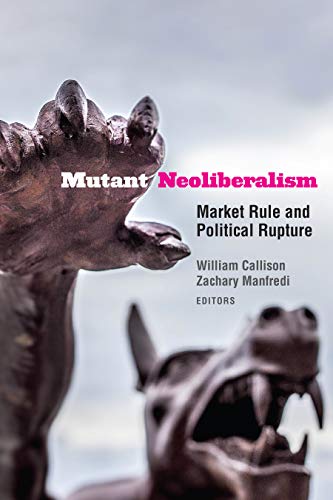This post is part of our symposium on Mutant Neoliberalism. You can find the full symposium here.
***
 Ken Loach’s 2016 film I Am Daniel Blake (2016) depicts post-crash austerity in all of its bleak barbarity. The plot revolves around the film’s protagonist, a middle-aged carpenter, who attempts to navigate the British welfare system after a heart attack makes it hard for him to work. The authorities don’t seem to agree with Blake’s cardiologist, who deems him unfit to work, so they send him down a rabbit hole of denied unemployment claims, rejected appeals, idiotic make-work and financial destitution. The message the system sends to our unlucky hero is that he is not worthy: of the state’s resources, of an employer’s goodwill, of anyone’s sympathy, of his own basic humanity. On Michel Feher’s assessment, we might add another shortcoming: he isn’t creditworthy, either.
Ken Loach’s 2016 film I Am Daniel Blake (2016) depicts post-crash austerity in all of its bleak barbarity. The plot revolves around the film’s protagonist, a middle-aged carpenter, who attempts to navigate the British welfare system after a heart attack makes it hard for him to work. The authorities don’t seem to agree with Blake’s cardiologist, who deems him unfit to work, so they send him down a rabbit hole of denied unemployment claims, rejected appeals, idiotic make-work and financial destitution. The message the system sends to our unlucky hero is that he is not worthy: of the state’s resources, of an employer’s goodwill, of anyone’s sympathy, of his own basic humanity. On Michel Feher’s assessment, we might add another shortcoming: he isn’t creditworthy, either.
There are thousands, if not millions, of Daniel Blakes struggling to get by in the world, many of whom have even less going for them than this fictional white man living in Newcastle. In his contribution to Manfredi and Callison’s Mutant Neoliberalism, Feher views these individual lives as the final domino in a decades-long cascade of policy decisions that made creditworthiness a prerequisite for getting by in the world—whether one is an individual, a company, or a country.
Our economic universe, writes Feher, depends less on dollars and cents than on the concept of ratings: we must all live like corporations, now, “staking [our] livelihoods on the value of assets [we] happen to have.” Assets can be defined somewhat broadly: wealth, sure, but also health, education, attractiveness, and youth—on which lenders, investors, and even the state can speculate to assign a person a value. This isn’t unlike how a corporation is valued, at least in the short-term: actual profits tend to matter less than its stock prices and projected earnings, which indicate how readily investors might lend them money (debt, here, is a positive sign: someone else was willing to lend!)
Feher writes that this way of seeing the world has changed the very function of a government. Running a country becomes much like managing a business, particularly when it comes to seeking investors to boost asset values. The features of modern state sovereignty—control over territory, borders, currency, and laws—all function in the service of creditors, not constituents. The public sector has adapted to and indeed enabled credit’s reign by remaking society in its image: cutting regulation, lowering “dependencies” on welfare, and overall catering “to investors’ preferences for business-friendly tax codes and flexible labor markets.”
Feher’s illuminating analysis explains a lot of quirky policy decisions governing immigration on the part of individual states, particularly in Europe. Ever wonder why Portugal, Ireland or indeed the Philippines encourage young people to expatriate all while luring in rich foreign corporations and even retirees by lowering taxes? This might not seem like a wise long term solution, Feher concedes, but that’s precisely the point: the goal is to boost a country’s “per capita capital-value immediately—and not about ensuring sustained profitability.”
It is thus inevitable that most individuals aren’t seen as humans so much as collateral; that, then, explains why an ageing low-skilled worker with health problems like a Daniel Blake, “having lost their positive effect on the creditworthiness of the country,” might be downgraded to the point of being deemed worthless.
A society in the thrall of credit actively seeks to cleanse itself of such unattractive individuals, first purging them from unemployment statistics by shunting them into disability or retirement, then, when that expense starts to look bad on the balance sheets, denying them welfare as well. The most efficient move, though, is to prevent them from showing up—on paper and in person—in the first place. “Disposing of the discredited has become a multidimensional European project rich in public-private partnerships,” Feher writes.
Daniel Blake might even be one of the lucky ones; at least he’s male, white, and “from” Newcastle, rather than brown or black and trying to get there on a dangerous migrant trail, or through the futile channels of immigration bureaucracy. Foreigners can be put to use, too: to pit undesirable native against even-less desirable other. Racism and xenophobia can be reassuring to “those who don’t have much in their portfolio.” In Loach’s film, it doesn’t even come to that; it hardly feels like a spoiler to note here that Daniel Blake ultimately succumbs to his medical condition. Only then is he given a state-subsidized parting gift: a public health funeral.


